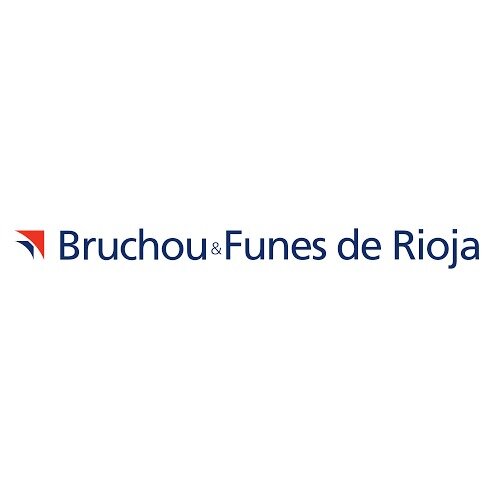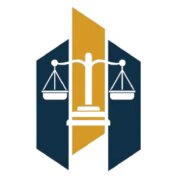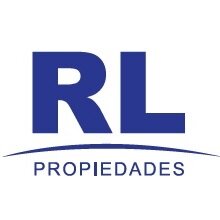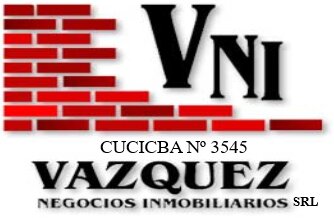Best Conveyancing Lawyers in Buenos Aires
Share your needs with us, get contacted by law firms.
Free. Takes 2 min.
Free Guide to Hiring a Real Estate Lawyer
List of the best lawyers in Buenos Aires, Argentina

About Conveyancing Law in Buenos Aires, Argentina
Conveyancing in Buenos Aires, Argentina, refers to the legal process of transferring property ownership from one person to another. This process typically includes negotiating terms, drafting and reviewing sale contracts, performing due diligence on property titles, and ensuring compliance with local regulations. The system in Buenos Aires is regulated by the Argentine Civil and Commercial Code and relevant municipal ordinances, which set out the procedures and requirements for property transactions.
In Buenos Aires, property transactions are formal processes that often involve both public notaries (escribanos) and lawyers. Notaries in Argentina play a significant role in the conveyancing process. They are responsible for drafting the public deed, verifying the property’s legal status, and ensuring that all legal obligations are met before ownership is transferred.
Why You May Need a Lawyer
Property transactions can be complex, and legal assistance is often essential to avoid potential pitfalls. Here are common situations where people in Buenos Aires may require a lawyer for conveyancing:
- Purchasing or selling residential or commercial real estate.
- Transferring inherited property or settling estate matters.
- Resolving disputes about property boundaries or ownership.
- Ensuring clear title and verifying any encumbrances or debts on the property.
- Drafting or reviewing purchase agreements and contracts.
- Complying with tax obligations related to property transactions.
- Navigating the process as a foreign buyer or seller with unique legal requirements.
Engaging a lawyer experienced in Buenos Aires conveyancing helps safeguard your interests, translates complex legal jargon, and facilitates a smooth transaction.
Local Laws Overview
Conveyancing in Buenos Aires is governed by a combination of national codes and local regulations. Here are key legal aspects to consider:
- The intervention of a public notary (escribano) is compulsory for the execution of the public deed transferring property ownership.
- Both the buyer and seller must provide proper identification and proof of authority over the property.
- All outstanding municipal taxes and utility charges must be settled before the transfer.
- Stamp duty (impuesto de sellos) and other transfer taxes are usually paid by the buyer, although this may be negotiated.
- Foreign buyers must follow additional procedures, including registering with the Federal Administration of Public Revenues (AFIP) and complying with currency control regulations.
- Properties subject to horizontal property regimes (similar to condominiums) have specific rules regarding common areas and association fees.
- Due diligence must be performed to check for liens, mortgages, or legal disputes affecting the property.
It is essential to be aware of these requirements to avoid unforeseen delays or legal complications during the conveyancing process.
Frequently Asked Questions
What is the role of the notary (escribano) in conveyancing?
In Buenos Aires, the notary acts as an impartial legal professional who prepares the public deed, verifies property titles, handles tax payments, and finalizes the transfer of ownership between parties.
Do I need a lawyer if I already have an escribano?
While not compulsory, having a lawyer is recommended. The escribano focuses on formalities and legality, while a lawyer specifically protects your interests, negotiates terms, and provides personalised legal advice.
How long does the conveyancing process take?
Typically, the entire process from signing the preliminary agreement (boleto de compraventa) to executing the public deed takes between 30 to 90 days. Timelines can vary depending on due diligence, paperwork, and negotiation between parties.
Can foreigners buy property in Buenos Aires?
Yes, foreigners can purchase property in Buenos Aires. However, there are additional steps, such as registering with the AFIP and meeting local banking regulations for money transfers.
What due diligence is performed during conveyancing?
Due diligence includes title searches, verification of tax and utility payments, checking for liens or legal disputes, and ensuring the property complies with zoning and planning laws.
What taxes and fees are involved in buying or selling property?
Main costs include notary fees, stamp duty, transfer tax, registration fees, and in some cases, foreign exchange costs for international buyers. The distribution of these costs can be negotiated in the contract.
What happens if there are outstanding debts on the property?
If debts exist, they must typically be paid before or at closing. The notary is responsible for verifying that the property is free of debts prior to the completion of the sale.
Can sales contracts be made privately without a notary?
Private contracts (boleto de compraventa) can be signed as preliminary agreements, but the public deed executed by a notary is required for the formal transfer of ownership and registration of the property.
How is property inherited in Buenos Aires?
Inheritance is handled according to the Argentine Civil and Commercial Code. Heirs must initiate probate proceedings and have the property formally transferred through a notarial process.
What rights do buyers have if defects are discovered after the sale?
The law provides certain protections against hidden defects (vicios ocultos). Depending on the circumstances, buyers may have the right to seek compensation or rescind the sale under specific conditions.
Additional Resources
If you need further guidance on conveyancing in Buenos Aires, the following resources may be helpful:
- Local public notary offices (Colegio de Escribanos de la Ciudad de Buenos Aires) - for information on notarial requirements and certified notaries.
- Ministry of Justice and Human Rights of Argentina - for understanding property laws and dispute resolution services.
- AFIP (Federal Administration of Public Revenues) - for information on tax obligations and procedures for foreign buyers.
- Bar Association of Buenos Aires (Colegio Público de Abogados) - for locating qualified conveyancing lawyers.
- Municipal Real Estate Registry (Registro de la Propiedad Inmueble) - for property records and title verification.
Next Steps
If you are considering buying, selling, or transferring property in Buenos Aires, it is advisable to:
- Gather all available documentation related to the property, including titles, tax receipts, and utility bills.
- Consult with a qualified local lawyer experienced in property transactions and conveyancing.
- Contact a public escribano to handle the formalities of the transaction and execute the public deed.
- Ensure all taxes and municipal fees are up to date to avoid delays.
- Conduct thorough due diligence to verify the property’s legal status and compliance with local laws.
Professional legal advice can make a significant difference in ensuring your conveyancing process is smooth, legally compliant, and secure. Do not hesitate to reach out to specialists in Buenos Aires for tailored support and guidance.
Lawzana helps you find the best lawyers and law firms in Buenos Aires through a curated and pre-screened list of qualified legal professionals. Our platform offers rankings and detailed profiles of attorneys and law firms, allowing you to compare based on practice areas, including Conveyancing, experience, and client feedback.
Each profile includes a description of the firm's areas of practice, client reviews, team members and partners, year of establishment, spoken languages, office locations, contact information, social media presence, and any published articles or resources. Most firms on our platform speak English and are experienced in both local and international legal matters.
Get a quote from top-rated law firms in Buenos Aires, Argentina — quickly, securely, and without unnecessary hassle.
Disclaimer:
The information provided on this page is for general informational purposes only and does not constitute legal advice. While we strive to ensure the accuracy and relevance of the content, legal information may change over time, and interpretations of the law can vary. You should always consult with a qualified legal professional for advice specific to your situation.
We disclaim all liability for actions taken or not taken based on the content of this page. If you believe any information is incorrect or outdated, please contact us, and we will review and update it where appropriate.












